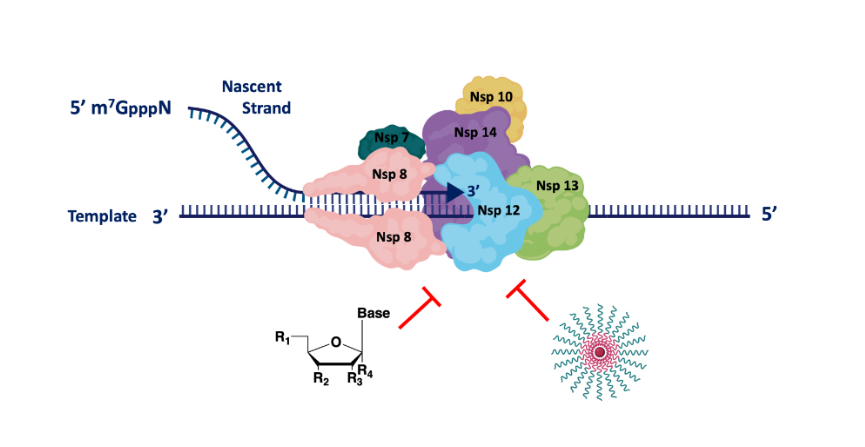
【Targeting coronavirus proofreading mechanism & antiviral drug discovery】
The coronavirus disease 2019 (COVID-19) that is wreaking havoc on global public health and economies has heightened awareness about the lack of effective antiviral treatments for human coronaviruses (CoVs). Leading a team of international researchers from United Kingdom, Vietnam, France and Turkey, Prof. Billy Wai-Lung Ng from CUHK Pharmacy review the molecular basis of coronavirus RNA proofreading mechanism, and evaluate nucleoside analogues and nucleic acid-based therapies that could be used either individually or in combination to therapeutically target the CoV proofreading mechanism.
Many current antivirals, notably nucleoside analogues, exert their antiviral effect by incorporation into viral genomes and subsequently disrupt viral replication. The development of anti-CoV drugs has been hindered by the capacity of CoV nsp14 exonuclease (ExoN) that proofread and remove mismatched nucleotides during genome replication and transcription. Nonetheless, ExoN is both structurally and functionally conserved across CoVs, which makes ExoN a vulnerable target for anti-CoV strategies. The team of Prof. Ng is currently developing novel drug candidates targeting along this direction.
Full review paper in the internationally renowned journal Molecular Cell: https://www.cell.com/molecular-cell/fulltext/S1097-2765(20)30518-9
【針對冠狀病毒的校對機制及藥物研發】
對全球公共衛生和經濟造成嚴重破壞的2019年冠狀病毒疾病(COVID-19)使人們更關注到缺乏有效的抗冠狀病毒藥物。香港中文大學藥劑學院吳濰龍教授領導香港、英國、越南、法國和土耳其的科學家深入探討冠狀病毒RNA分子的校對機制以助新藥研發,並評估單獨使用或結合使用核苷類似物和核酸藥物以靶向此校對機制。
目前許多抗病毒藥,尤其是核苷類似物,通過摻入病毒基因組壓制病毒複製而發揮其抗病毒作用。 冠狀病毒nsp14核酸外切酶(ExoN)的校對機制可在基因組複製和轉錄過程中去除錯配的核苷酸,影響核苷類似物效力及阻礙了抗冠狀病毒藥物的研發。正因為CoV ExoN在結構和功能上非常保守,這使ExoN成為抗CoV策略的脆弱目標。吳教授團隊目前正在按照這一方向開發新型抗病毒藥物。
相關論文已於國際知名學術期刊《Molecular Cell》發表 : https://www.cell.com/molecular-cell/fulltext/S1097-2765(20)30518-9



